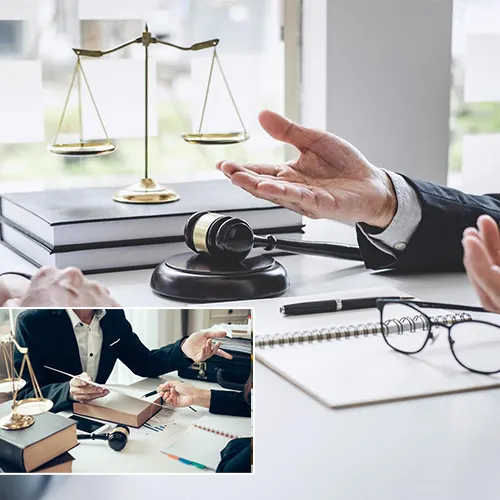Understanding DUI Checkpoint Legality: Your Rights and Regulations
Table of Contents []
DUI Checkpoint Legality
Understanding DUI Checkpoint Legality with 1-800-Numerouno

DUI Checkpoint Legality is a topic we at 1-800-Numerouno take very seriously. We recognize that Drunk Driving Checkpoints aren't just a matter of public safety-they're also deeply tied to individual rights and legal qualifications. Our resources aim to shed light on the intricate laws, offering clarity and peace of mind. Imagine being well-versed in your rights and the letter of the law; that's our commitment to you.
Being informed is your power. Driving under the influence is dangerous, and checkpoints are one way the law attempts to keep our roads safe. However, the implementation of DUI checkpoints and the procedures involved often raise questions about legalities. We ensure that our visitors understand the fine line between legal enforcement and protecting their rights.
Should you be faced with a DUI checkpoint, knowledge is your best defense. We provide the information necessary to navigate the situation effectively and legally. If you find yourself in need of legal assistance, we are your bridge to expert attorneys. Remember, we are available to answer your questions or to book an appointment at (512) 607-7410.
The Legal Basis of DUI Checkpoints
In the United States, DUI checkpoints are legal based on a Supreme Court decision that strikes a balance between individual rights and public safety. It's important to know that these checkpoints must adhere to specific guidelines to be considered constitutionally valid.
Understanding these guidelines can empower you if you're stopped at a DUI checkpoint. For example, these stops cannot be random; law enforcement agencies must use a neutral formula, like stopping every fourth car, to avoid claims of discrimination or personal bias.
What to Expect at a Checkpoint
Feeling anxious when approaching a checkpoint? It's a common reaction. But knowing what to expect can ease the tension. Usually, you'll be asked to slow down and an officer will briefly check for signs of impairment. If there's nothing awry, you'll be back on the road in no time.
However, if an officer suspects DUI, you'll likely be subject to further testing. This is where knowing your rights comes into play. You have options, and understanding those choices can profoundly impact your experience.
Your Rights at DUI Checkpoints
You have rights that protect you at DUI checkpoints. Are you aware you don't have to answer all questions posed by law enforcement? A polite "I'd prefer not to answer" is within your rights. Also, while you must present your license and registration, more extensive searches require your consent or probable cause.
We encourage you to learn more about these rights, so you're prepared. However, assert your rights respectfully-antagonizing officers will not help your cause. Make sure to stay calm and co-operative during the stop. This approach usually leads to the best outcome.
When Legal Help is Necessary
Sometimes, even with the best knowledge and intentions, things can escalate. That's where we come in. We connect you to seasoned DUI attorneys who can navigate you through the maze of legal intricacies. They'll handle the heavy lifting so you can focus on what matters most.
Have your experience at a checkpoint felt wrong? You might have a case. Our network of attorneys is ready to analyze your situation and offer advice. Connect with us if you need to discuss further, plus we can easily be reached at (512) 607-7410 for any pressing concerns.
The Rights You Have Against Unjust DUI Procedures

When it comes to DUI checkpoints, knowing your rights isn't just important-it's essential. At 1-800-Numerouno, we pride ourselves on equipping our readers with the know-how to handle these situations. You should never feel powerless against unjust procedures.
It's all about striking a balance. While law enforcement officers have a duty to protect by reducing the dangers of drunk driving, your constitutional rights remain paramount. Knowing what is and isn't justified can keep you safe on both fronts.
So if you ever feel your rights are being breached, or if you're unsure about the proper protocols that officers must follow, reach out. Our resources and expert lawyers are just a call away at (512) 607-7410. Stay informed, stay protected.
Protocols Officers Must Follow
Unlike what many might think, there is a strict set of rules governing the conduct of police officers at DUI checkpoints. These include being properly identified and providing clear instructions to drivers. No room for ambiguity here these protocols are designed to maintain clarity and fairness.
We aim to peel back the layers of legal jargon and brighten you up on these protocols. A checkpoint encounter should be straightforward but know that any deviation from these set protocols can compromise the legality of the stop.
Understanding the Boundaries of Police Authority
Yes, police are authorities, but they have boundaries that must not overstep. At a DUI checkpoint, you may wonder about the extent of police authority. We're here to demystify that for you.
You have the right to question if you feel those boundaries are being crossed. As long as you maintain civility, asking for clarification is within your rights. After all, mutual respect is the cornerstone of any police-citizen interaction.
Handling Questionable DUI Stops
What if a stop doesn't seem right? That intuition might be more than just nerves. If you suspect a stop was mishandled or your rights were violated, documenting the experience is vital.
And remember, if you end up in hot water, 1-800-Numerouno can back you up. Our resources can guide you on how to proceed and when to seek legal counsel. Don't face questionable DUI stops alone; expert help is within reach at (512) 607-7410.
Exercising Your Rights Respectfully
Exercising your rights doesn't have to mean confrontation. Knowing how to articulate your concerns and questions politely can make all the difference during a DUI stop. This approach not only helps diffuse tension but also positions you as an informed citizen.
Our resources and advice aim to arm you with respectful strategies for asserting your rights. Remember, engaging with law enforcement should be done with courtesy and awareness, reflecting your knowledge and understanding of your fundamental rights.
The Role of Checkpoints in Public Safety

While much of our focus at 1-800-Numerouno is on individual rights, we acknowledge the role that DUI checkpoints play in maintaining public safety. They serve as a powerful deterrent against driving under the influence, a vice that endangers communities.
These checkpoints also send a strong message: society does not tolerate drunk driving. But this doesn't mean the ends justify the means. Adhering to legal protocols ensures that checkpoints remain both effective and respectful of civil liberties.
We all want safer streets. By understanding and supporting proper DUI checkpoint operations, we contribute to the betterment of public safety without compromising on the rights we hold dear.
Effectiveness of DUI Checkpoints
Research suggests that DUI checkpoints can lead to a reduction in alcohol-related incidents by deterring potential offenders. They act as a visible sign of law enforcement's commitment to stopping DUIs, which can dissuade individuals from getting behind the wheel after drinking.
We explore and explain the statistics and studies behind their effectiveness. This helps everyone see not only the justification for these checkpoints but also the impact they have on saving lives.
Deterrence vs. Detection
It's a strategic play-DUI checkpoints operate on two fronts: deterrence and detection. The mere existence of checkpoints can prevent drunk driving incidents, while each stop has the potential to detect and address on-the-spot offenses.
Our information sheds light on how this two-pronged approach functions and why it's key in traffic safety strategies across the nation. It's about understanding the bigger picture while focusing on individual experiences.
Public Safety vs. Individual Rights
There's a tightrope walk between public safety and individual rights, and DUI checkpoints are smack in the middle of it. The law recognizes the necessity of these checkpoints, but not at the expense of constitutional rights.
We delve into how this balance is achieved, emphasizing the importance of lawful procedures and respect for individual freedoms. It's critical that this equilibrium is preserved to foster trust and cooperation between law enforcement and the public.
Community Impact of DUI Checkpoints
The reach of DUI checkpoints extends into the community, signaling a commitment to safe and responsible driving. The psychological impact alone can be significant, showcasing community values and priorities.